Search and destroy
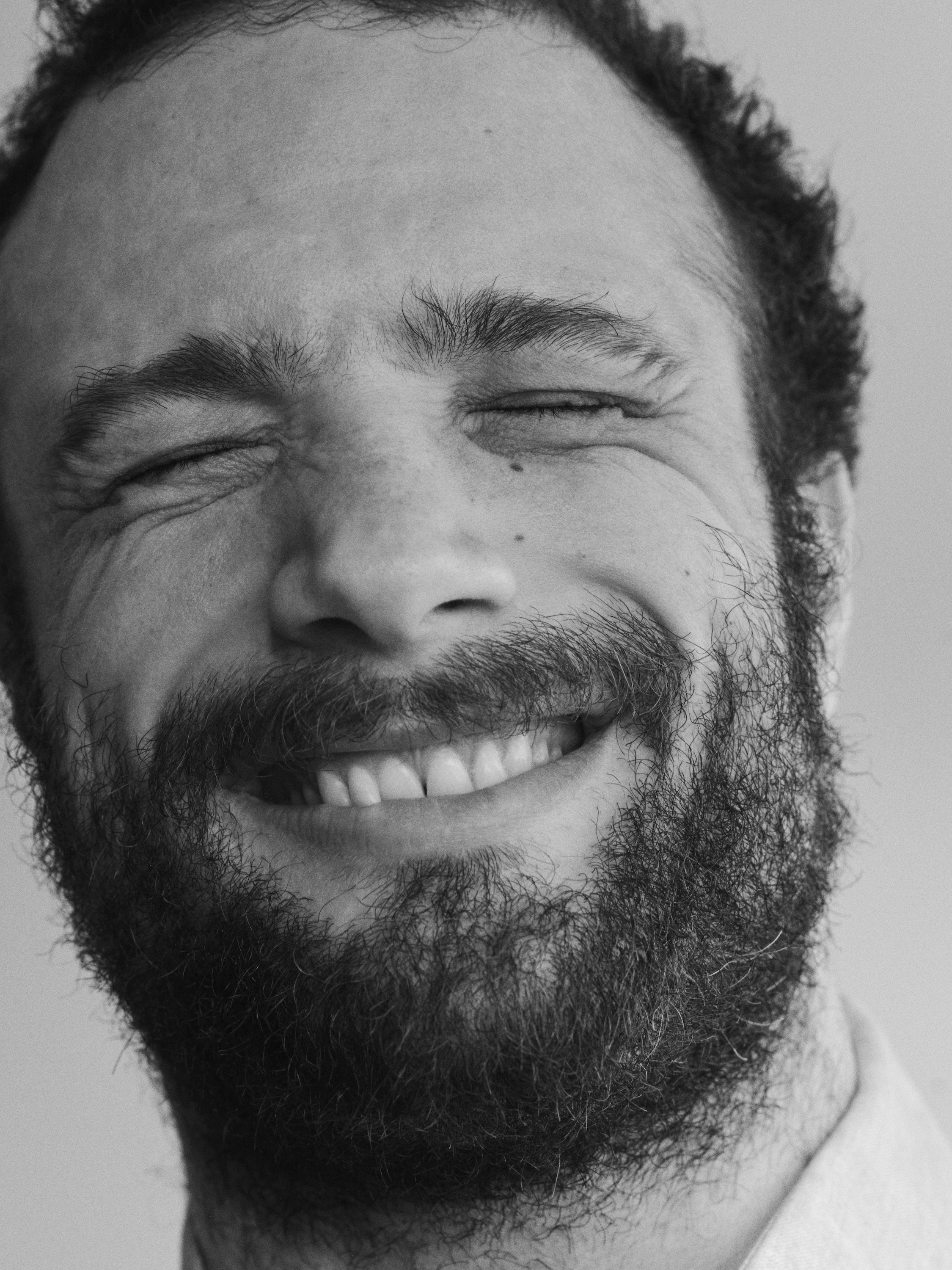
Before I meet Cosmo Jarvis, I’m warned that he’ll be doing an accent. He won’t be in character, mind, he’s not going that method – he’ll just be speaking differently.
When we sit down in a North London café, he greets me with the genial cadence of an aristocrat, part of the role he’ll be playing in Guy Ritchie’s upcoming film Wife & Dog, which was due to start filming soon after our meeting. Knowing someone’s speaking to you in an accent that isn’t theirs takes some getting used to, like conversing with a spy you’ve rumbled. But Jarvis tells me he takes no particular joy in it.
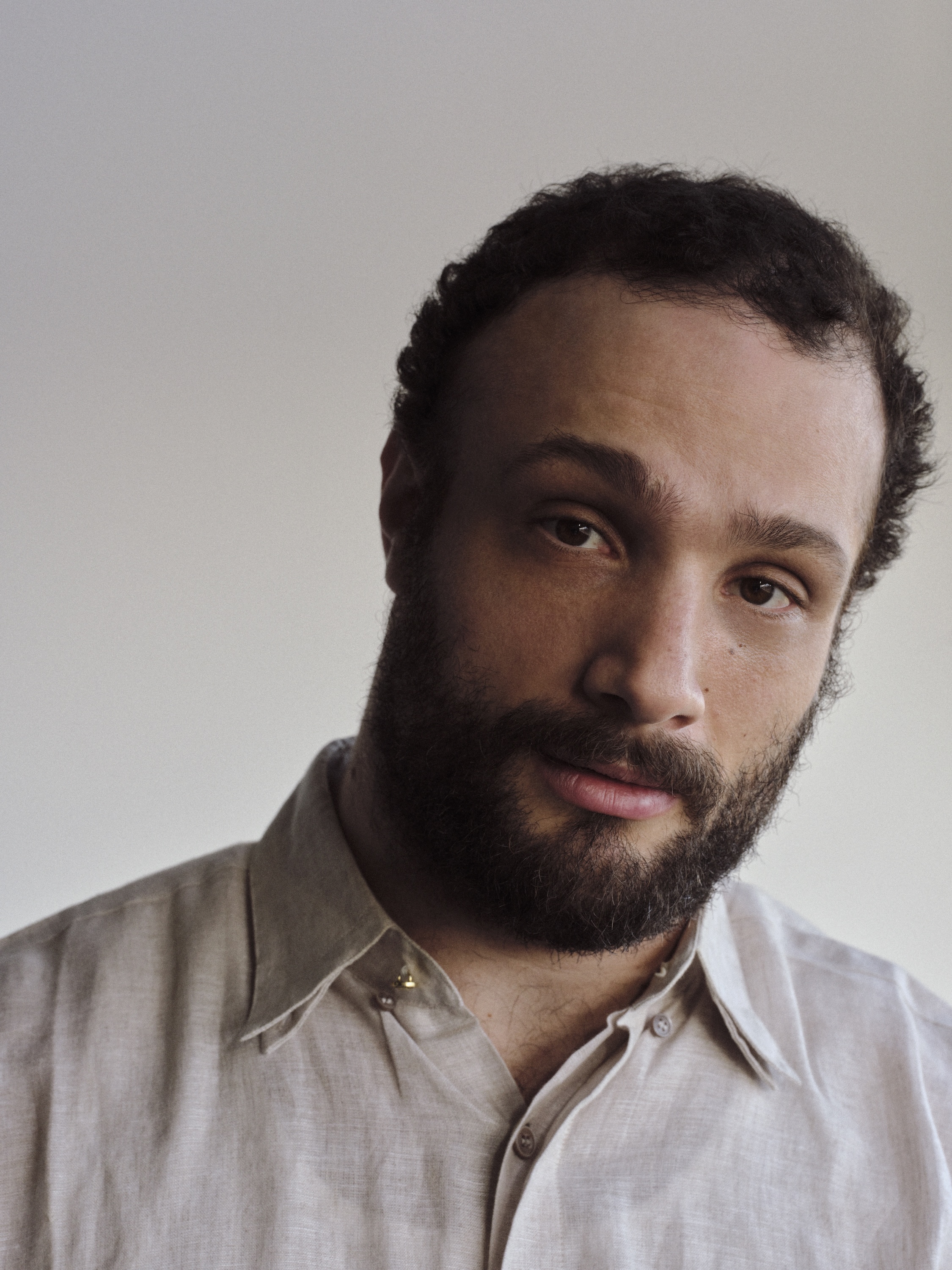
“It sort of just comes with the brief,” he says, leaned-in and attentive. “I probably wouldn't use the word ‘enjoy’, but I mean, I recognise the challenge and, if the character demands something of that nature, which they usually do, then I just consider it a necessary part of the workload.”
The accent workload has been heavy for Jarvis over the past 12 months. Between our meeting and April, three films in which Jarvis appears will be released: The Alto Knights, a Barry Levinson directed mob movie with De Niro playing both lead roles; Inside, an Aussie prison drama, and Alex Garland’s upcoming hyperreal Iraq war movie, Warfare, where he plays a Navy SEAL. A pretty exceptional year, then, wouldn’t he agree?
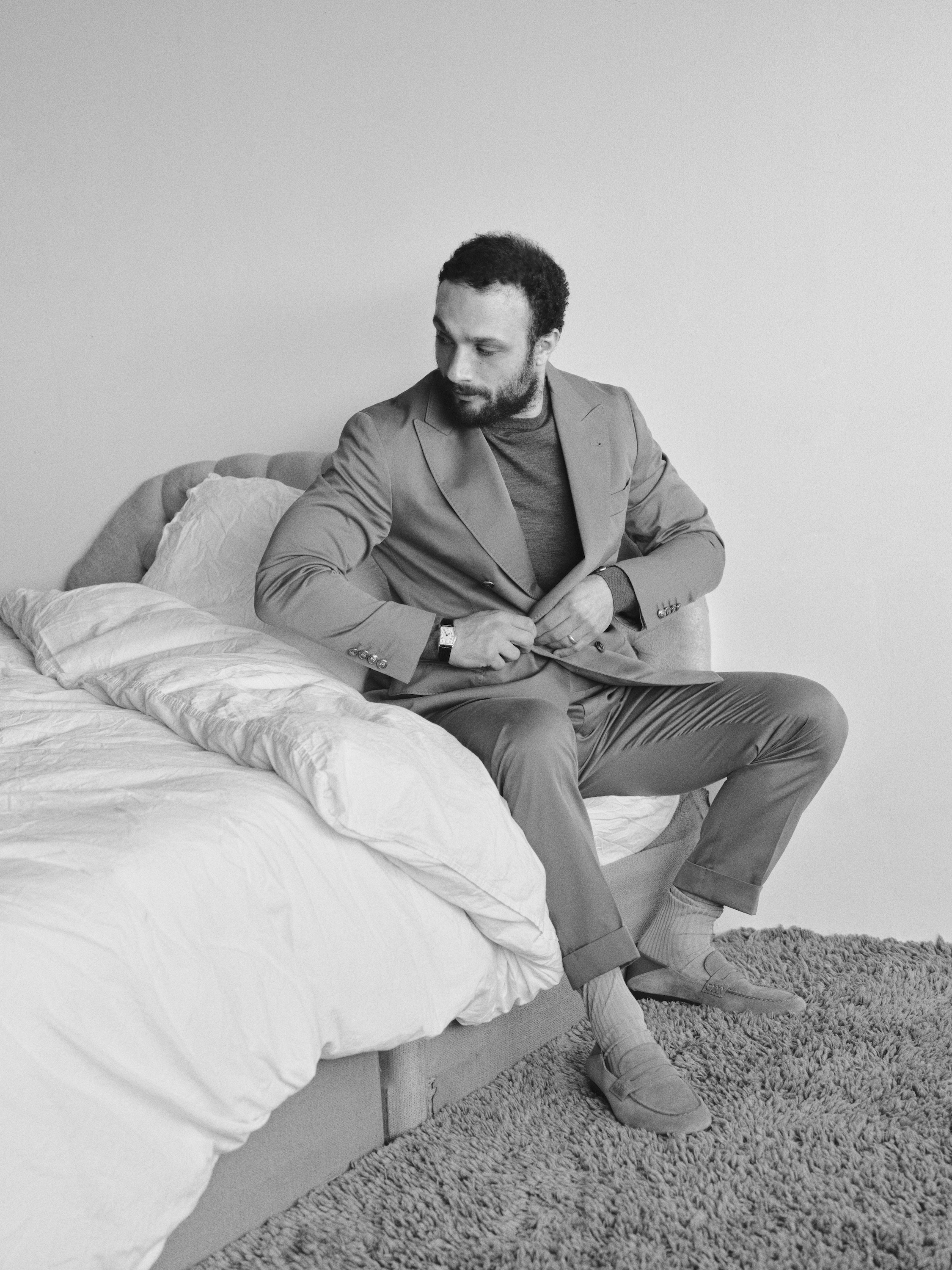
“Not really – I mean ‘exceptional’ is a strong word. I've had a good 12 months,” he tells me in his finest RP, like a retired colonel on a LinkedIn panel. “But it's hard to ever define something as exceptional in this industry, in this occupation. Because it's all up in the air and consistently different, there seems to be no discernible identifiable trend, ever. So it just sort of is what it is.” He muses for a second, before adding, “I'm glad to be employed.”
If this sounds like false modesty, don’t be so quick to judge. Jarvis seems purposefully exacting in everything he says over the course of our chat, taking long stretches of time to consider his answers. He’s extremely selective about what roles he takes on, and as such only really came to international prominence after his role as John Blackthorne in Shōgun, the epic story of an English pirate embroiled in the machinations of various feudal lords in 16th-century Japan.
The show is blasting its way through the ongoing awards season, with Shōgun itself and its Japanese leads getting well-deserved gongs. But Jarvis is curiously – some might say obscenely – absent from the nominations list.
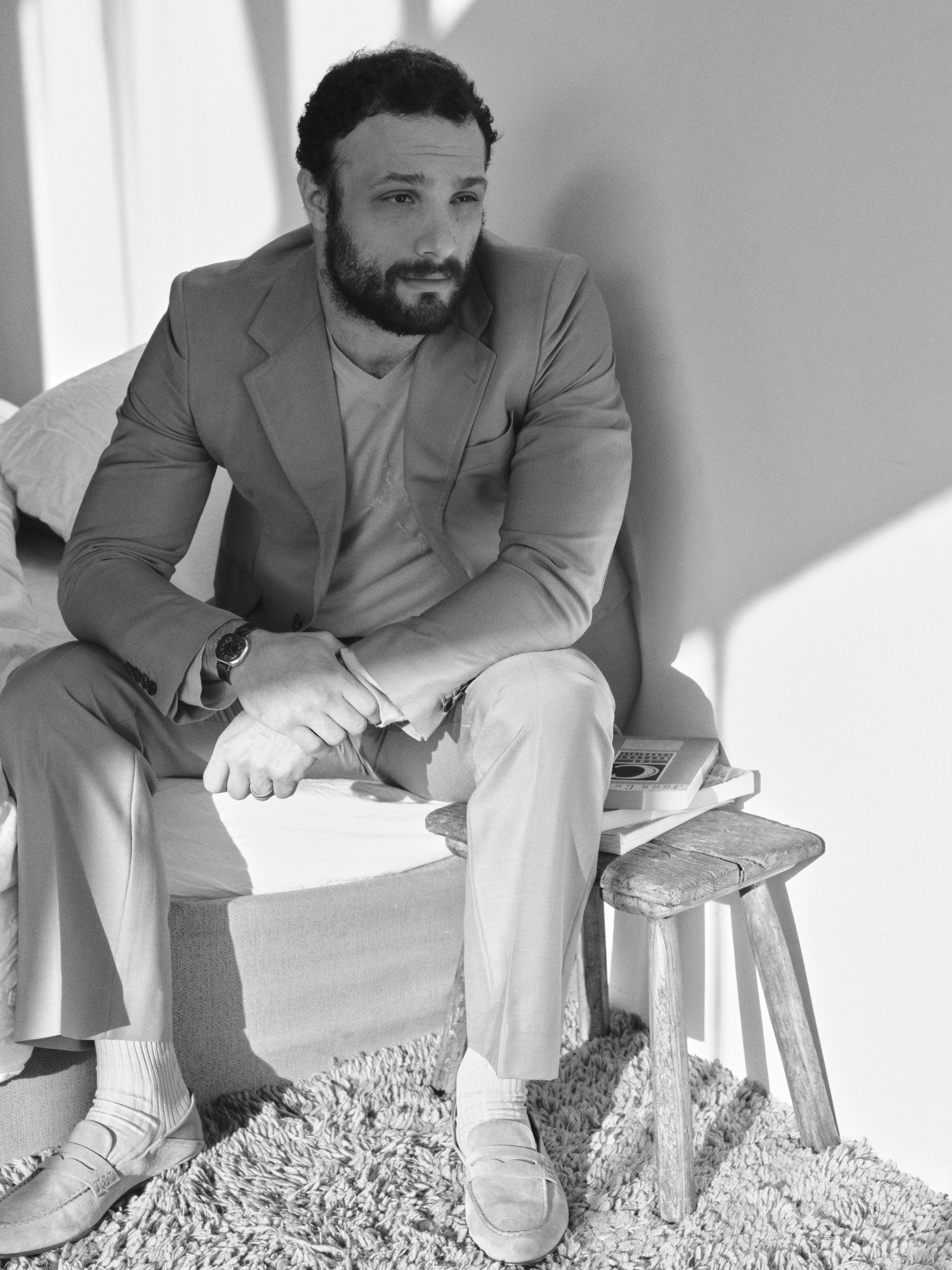
Though he declined to discuss this, I get the sense that the accrual of awards doesn’t mean too much to Jarvis; or, at the very least, mean perhaps less than they do to some of his peers. He strikes me as an old school thesp, a diehard for the craft who’s just happy to be here, and maybe even slightly surprised he’s still allowed to keep doing it after all these years.
“None of my various surroundings have ever had much of an effect on how I ended up. I mean, any aims were born of external factors.”
Jarvis was born in New Jersey but moved to the UK almost immediately after. At some point he and his family moved to Totnes in Devon. But Jarvis has no real affinity with the place, or its unique society of, shall we say, left-of-field thinkers. “It was just a place where I lived for a while,” he tells me. “None of my various surroundings have ever had much of an effect on how I ended up. I mean, any aims were born of external factors.”
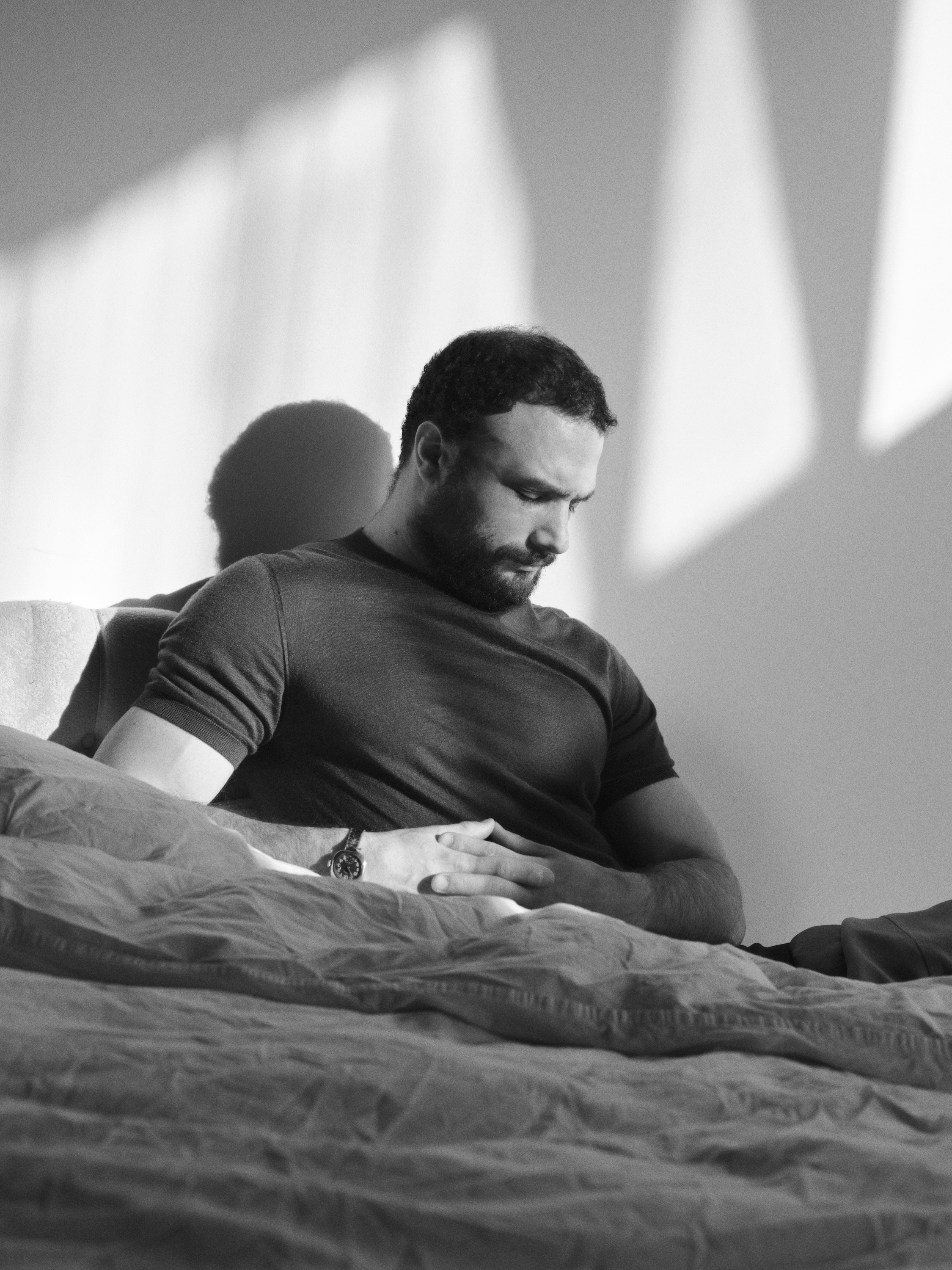
And what external factors led to this desire to act?
“My parents. They exposed my brother and I to lots of interesting movies when we were kids, and they had an enthusiasm and a sort of love of films and characters – that certainly helped.
Some of the most profound thoughts and questions and experiences and insights that I've ever stumbled upon have come from the movies I watched as a kid.”
One film you most certainly should not be showing to kids is Inside, where Jarvis stars opposite Guy Pearce as Mark Shepherd, a born-again Christian who was imprisoned at 13 for the rape and murder of another child. It’s the debut feature of Charles Williams, the writer and director of 2018’s acclaimed short All These Creatures, and is a brutal and sad film, a fine addition to the list of brutal and sad Aussie realism flicks, alongside the works of Justin Kurzel (The Snowtown Murders, Nitram).
Jarvis’ performance is intimidating but has the deft vulnerability one imagines of a true lifetime prisoner. In one shocking scene, the young inmate who’s been sent to kill him (played by Vincent Miller in his debut role) attempts to fellate Shepherd as a distraction tool, but discovers he’s castrated himself, a plastic urethral tube instead of a penis. A child-raping eunuch – quite the role to immerse oneself into. I ask Jarvis how he goes about it. He tells me that he first looked for people who shared similar aspects to his character’s formative circumstances, plus “others who had attributes of some of the symptoms of those circumstances”. Then he delved deep into Antipodean culture: “I just tried to absorb as much material as I felt I needed to place him geographically, demographically, and psychologically. Then I suppose I eventually happened upon someone which felt semi-complete, or completable at least, someone which seemed to me to justify the text”.
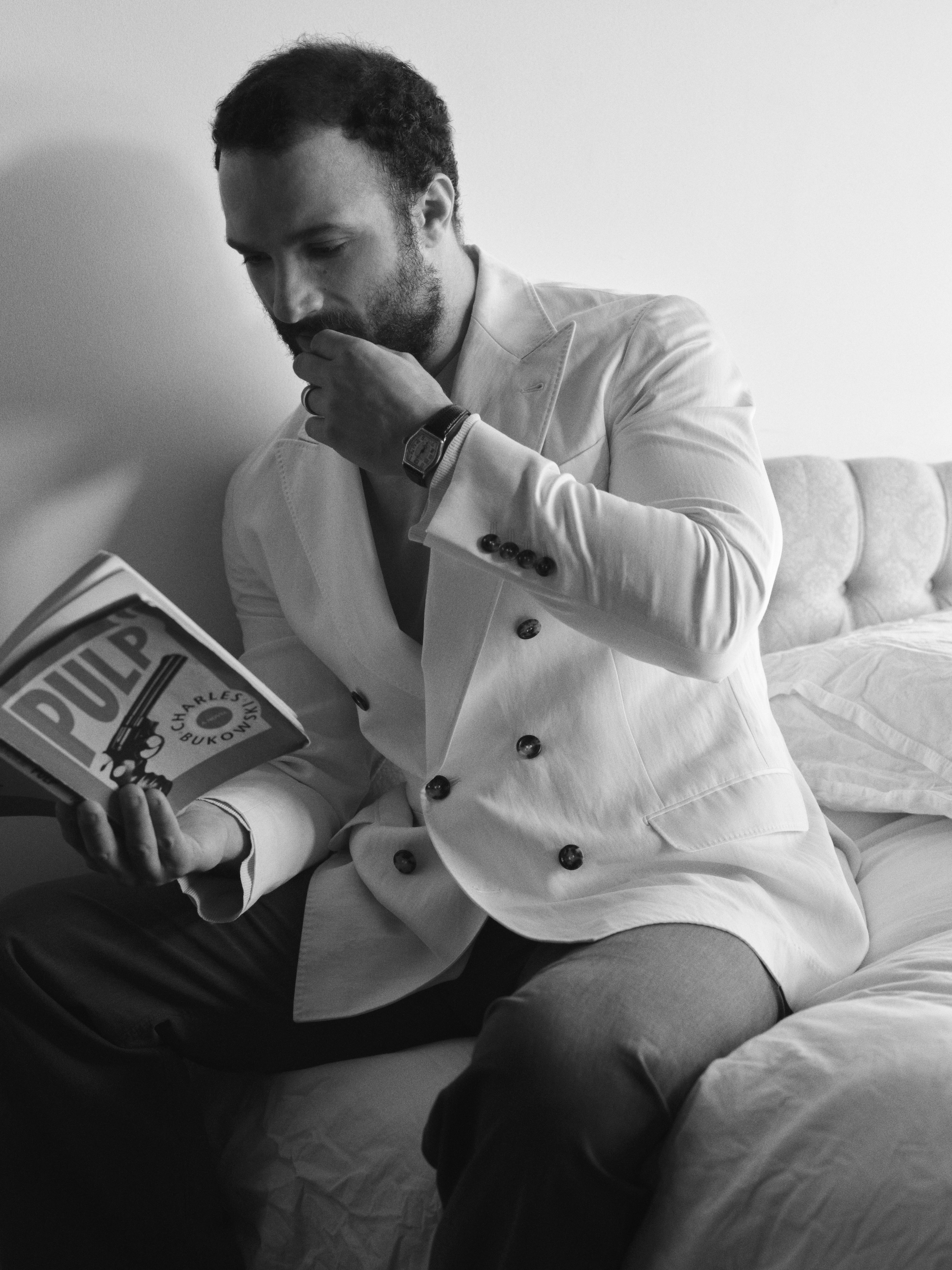
“Australia has a very unique and potent culture, humour, and way of life and that’s important to the story and characters. The script Charles wrote was unmistakably the creation of an Australian with a clear desire to tell a story intrinsic to the place and to show a place intrinsic to his story. I think that bursts through in the levity of some moments, despite the omnipresent seriousness of it all. Australians have a recognisable sense of humour and style of general chit chat. There is just a kind of earnestness which is quite refreshing.”
Jarvis himself has a refreshing earnestness too. Actors are actors, and all purport to be a blank slate of sorts, but often that is punctured with egoist mask slippages. Sometimes it just isn’t true. But Jarvis seems to genuinely be that: a man from nowhere, raised by nothing but films and theatre; a born chameleon ready to slip into whichever shoes are put in front of him, thankful for his ability to tie the laces. He doesn’t study the Meisner or Stanislavski, he learns on the job; a luvvie labourer. He doesn’t linger in the role, it doesn’t follow him around like a ghost – it comes and goes. Because it’s what you do.

“It's like starting from scratch every single time, because it's always so different. And part of the work itself, I feel, is to sort of destroy it; to destroy everything and start again each time.”
